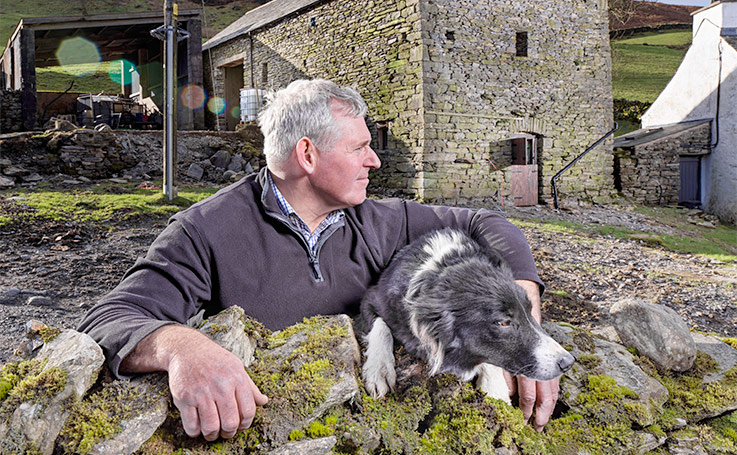
Author: Andrea Meanwell, Farming Officer, Lake District National Park Authority.
Have your say on a Plan for the Lake District which considers how we will achieve to achieve nature recovery, ensure the future of farming and forestry, and to make adaptations to reduce carbon and adapt to climate change together.
This is part of the wider Partnership Plan which contains actions on the key challenges affecting the Lake District. Farming-led nature recovery is one of the main ways that actions for farming, forestry, nature recovery and climate change will be delivered – this blog explains what we mean by this.
Continuing the work that environmental stewardship schemes have begun in the Lake District, farmers will be central to delivering nature recovery throughout the park. The new management plan has been developed by collaboration between organisations that represent the farming community, such as the NFU and the CLA, and conservation organisations including Cumbria Wildlife Trust and the RSPB, land owners and other partnership members like the Environment Agency, and United Utilities.
A partnership group with an interest in farming and land management called the ‘Post CAP Group’ has met over the past 18 months with the dual aim of being able to chart a way forward for farming in the Lake District as we leave the European Union, and develop the 2020-2025 management plan for the Lake District for farming, nature and climate change.
Farmers were initially asked for their opinions about the future of farming in the Lake District in early 2020 and during January this year. The NFU, Farmer Network, Federation of Cumbria Commoners and Lake District National Park Authority talked with over 120 farmers via webinar meetings, phone calls and email, and the responses have helped to shape the plan now ready for wider consultation.
Key concerns from the engagement included the survival of businesses through the period of change, the survival of hefted flocks, producing environmentally friendly food products, support for young farmers and visitor pressures during the coronavirus pandemic. This report summarises the key messages.
One of the aims of the plan is to support and encourage farmers to adapt their business in a way that not only makes their business resilient but also the landscape itself. Farmer led nature recovery can assist in making the landscape more resilient to serious flood events, create more joined up habitats for wildlife so that we have nature recovery networks throughout the park, and help achieve net zero carbon targets. Farmers will be enabled to adapt their businesses to farm regeneratively, building soils and storing carbon. In some areas nature recovery will also continue to be led or co-created by others – including partners on the Partnership, Rivers Trusts and Catchment Partnerships. A Heritage Horizons lottery bid to support the aims of the management plan has been submitted.
Wherever possible this will be achieved through collaborative area planning initiatives. A good example of an initiative like this is the Ullswater Catchment Community Interest Company that has been working to deliver farmer designed nature based natural flood management solutions and wildlife habitat creation in Patterdale and Matterdale. Farms have renaturalised rivers and created new hedgerows and shelter belts, boosting productivity on farm by building soils and improving animal welfare by adding shelter and shade to fields. Work like this can strengthen the traditional farming systems in the Lake District that produce high quality, sustainable food alongside helping nature recover.
The road ahead for farming in the Lake District is both challenging and exciting. New opportunities will be available for farmers to deliver nature recovery on their land, and build their businesses in new directions as we understand more about the Government’s Agricultural Transition Plan, new Environmental Land Management schemes, nature recovery strategies, opportunities to sell carbon credits and many other initiatives. Small, independent family businesses are one of the strengths of the Lake District, and working together can amplify opportunities and outcomes. We are all on this journey together, taking the first footsteps on the path towards the future. We look forward to supporting and enabling farmers and community groups along the way.